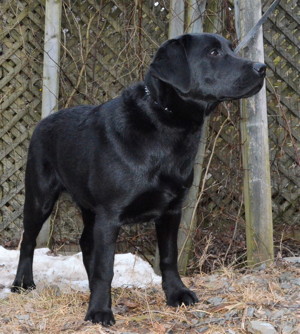OBEDIENCE TRIAL RULES AND REGULATIONS (CKC)
3 Judges
Introduction | Table of Contents | Prev | Next
3.1 Application for Approval of Judges
(Introduction | Table of Contents | Top)
3.1.1 - After a club has been granted permission by the CKC to hold an Obedience Trial, the club must submit a Judging Panel Application. The application must be submitted so as to be received not less than 120 days prior to the date of the trial. The application must set forth the names and addresses of the persons selected to judge as well as the classes assigned to each judge.
3.1.2 - When the Judging Panel Application reaches the CKC less than 120 days prior to the trial, an administrative fee as set by the Board will be assessed against the club.
3.1.3 - The club shall not select any judge who is ineligible to officiate at a trial held under these rules and regulations.
3.1.4 - Once approval is granted, the CKC will inform the trial-giving club that the judges have been approved. The trial secretary shall send to each approved judge a confirmation of assignment letter, supplied b the CKC as well as any other pertinent information that the club may include.
3.1.5 - If the CKC is not prepared to approve a selected judge, or it is not prepared to approve the entire assignment for which a judge has been selected, the club must submit to Head Office of The Canadian Kennel Club the name or names of an alternative judge(s) for those classes or trials.
3.1.6 - Once a panel of judges has been approved by the CKC, no change will be permitted except when necessary (i.e. due to death or illness) and with CKC permission.
3.2 Judge's Eligibility
(Introduction | Table of Contents | Top)
3.2.1 - The Board may prescribe such regulations and procedures in order to determine and/or test the qualifications of a person applying for approval to judge any or all obedience trial classes, as well as any person already approved to judge obedience trials under these regulations.
3.2.2 - The Board has the authority to do any or all of the following from time to time, as it deems advisable:
(a) Prescribe and enforce regulations, policies and procedures, with a view to determining the qualifications of those wishing to establish eligibility to judge at approved obedience trials (Policy & Procedures Manual available online on CKC website).
(b) Fix policies and requirements applicable to non-resident judges.
(c) Prescribe requirements for the testing of judges who are the subject of complaints.
(d) Prescribe and communicate to judges, a Code of Ethics, of which any violation may subject the judge to the loss of any or all judging privileges.
(e) Take such other action as the Board may deem necessary from time to time with a view to ensuring an adequate supply of competent judges.
(f) Take generally such action, from time to time, to determine whether the judging privileges of a person should be continued, restricted or removed.
3.3 Contract Between a Club and a Judge
(Introduction | Table of Contents | Top)
3.3.1 - A verbal or written approach to a judge regarding a specific event must be confirmed in writing by the trial-giving club within 45 days of the inquiry or the assignment will be considered null and void and the judge is thereafter free to accept other assignments. In such circumstances, a judge who accepts another assignment must inform the trial-giving club by registered post.
3.3.2 - After receipt of confirmation that the judge's services are required, a judge must confirm in writing within 45 days, acceptance of the assignment. If the club does not receive confirmation within 45 days, the agreement will be considered null and void and the club is free to seek the services of another judge. A letter to this effect must be mailed to the judge by registered post.
3.3.3 - The Canadian Kennel Club will consider a signed letter by the club, for the engagement of a judge to officiate at future events, as a legal and authorized engagement. Any attempts to break such a contract by the club without reasonable and just cause could lead to immediate cancellation of future events until such dispute is settled. The Canadian Kennel Club will not enter into any disputes over fees and/or payments.
3.4 Substitute & Replacement Judge
(Introduction | Table of Contents | Top)
3.4.1 Substitute Judge
(a) If an advertised judge is prevented from fulfill- ing an assignment in whole or in part on the day of the trial, a qualified substitute judge shall be selected by the Conformation Show and/or Obedience Trial Committee. If no licensed judge is available, any person in good standing with the CKC who has trained or exhibited a dog that has earned a C.D.X. title may be used as a substitute judge in an emergency.
(b) The awards and scores made by the advertised judge shall stand and the substitute shall judge only those remaining classes. No dog entered under the advertised judge shall be withheld from competition if it has already been passed by the advertised judge. Any dogs which have yet to appear in the ring may be withdrawn from competition if requested in writing by the handler, however, the entry fee will not be refunded.
(c) The substitute judge shall judge the classes as originally approved by the CKC. The trial secre- tary will notify the CKC in writing of the particulars of the substitute judge(s) officiating as soon as reasonably possible and in any event no later than when reporting the results of the trial.
3.4.2 Replacement Judge
(a) Where a trial-giving club is notified before or after the issuance of a judging schedule, but prior to the day of the trial, that an advertised judge will not, for whatever reason, be able to fulfill a judging assignment, attempts will be made to secure CKC approval for a replacement judge. If CKC approval cannot be obtained the club will then seek the approval of the local CKC Director or Obedience Trial Representative. The club will subsequently notify the CKC of the circumstances of the approval and of the changes made.
(b) All those who have entered dogs under the advertised judge shall be allowed to withdraw at any time prior to judging of that trial. All requests for withdrawal shall be in writing and all entry fees and listing fees will be returned to the owner or the authorized agent of the dog. When possible, the trial-giving club will attempt to notify exhibitors of the judging change at the time the judging schedule is sent out.
3.4.3 - In all cases, changes in judges will be posted in a prominent location at ringside.
3.4.4 - A qualifying score earned under a substitute or replacement judge will be considered as having been earned under the advertised judge.
3.5 Judges Entering or Handling Dogs
(Introduction | Table of Contents | Top)
3.5.1 - Obedience judges are allowed to exhibit dogs they own, co-own and dogs owned by other people at obedience trials.
3.5.2 - A judge officiating at a trial may enter or handle any dog at that same venue on the days that they are not judging.
3.5.1 - Immediate family members of obedience judges are allowed to exhibit at shows and trials at which the family member is officiating, but may not exhibit under the family member. In the case of a family member judging a tied score, an exhibiting family member must withdraw because of conflict and a notation will be made to this effect in the judge’s book.
3.6 Indignities to a Judge
(Introduction | Table of Contents | Top)
3.6.1 - A judge officiating at a trial held under these rules shall not be subjected to indignities of any kind during the progress of the trial. It shall be the duty and obligation of the club holding the trial to see that this rule is effectively carried out.
3.7 Judge's Conduct
(Introduction | Table of Contents | Top)
3.7.1 - A Judge must conduct himself in a manner that is fair and not prejudicial to the sport.
Top | Introduction | Table of Contents | Prev | Next



